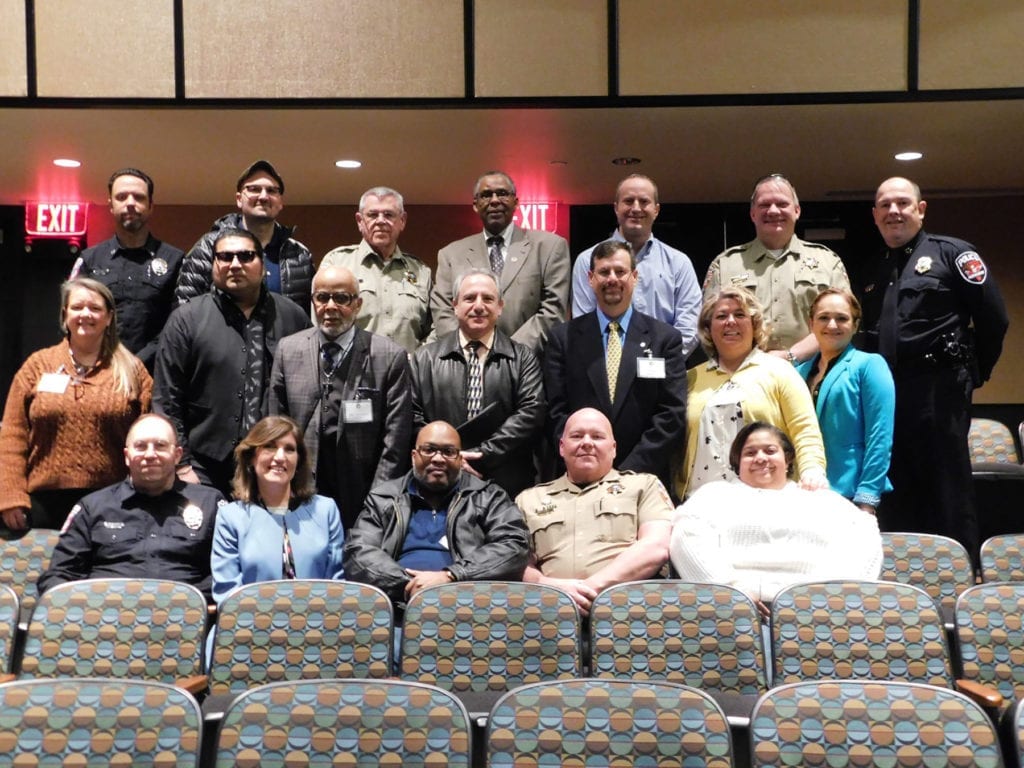By Ashley Benkarski
MURFREESBORO, TN — It’s been six months since the racially-motivated desecration of Walnut Grove Missionary Baptist Church, another incident in a growing trend of such crimes over the past few years.
This isn’t the first time a place of worship has been attacked here—the Islamic Center of

Murfreesboro was the target of a hate crime in August 2010, an act that garnered national attention and was featured on Comedy Central’s “The Daily Show with Jon Stewart.” It was vandalized again in 2017.
To address the community’s concerns over safety in places of worship, the Community Action Committee of Rutherford County and the Department of Justice’s Community Relations Service hosted a forum Mar. 5 at Middle Tennessee State University’s Tucker Theater that featured attorneys, federal, state and local law enforcement officials and local religious organizations. Attendees were given the opportunity to ask questions between panels to encourage open dialogue between congregations and the law enforcement community.
“No threat should be taken lightly,” Frank Haera, ATF supervisor, said. He added that congregations should be made aware and plans put in place for safe and effective emergency management in the event of a violent act. Law enforcement speakers stressed the importance of cameras and good lighting as deterrents as well as helping identify perpetrators.
The forum is one part of the CRS initiative to protect places of worship through educating the community about hate crimes and providing guidance for safety in the event of violence, such as bomb threats, arson or an active shooter situation. CRS also “works with communities in conflict to help rebuild relationships, facilitate mutual understanding, and encourage the development of local solutions.” It was established by Title X of the Civil Rights Act of 1964 and its mandate expanded in 2009 via the Matthew Shepard and James Byrd, Jr. Hate Crimes Prevention Act.
A hate crime is defined by the FBI as “a criminal offense against a person or property motivated in whole in or in part by an offender’s bias against a race, religion, disability, sexual orientation, ethnicity, gender, or gender identity,” with statutes varying by state. In Tennessee, a crime has to satisfy one of two requirements before it can be classified as a hate crime: 1) the act violated the civil rights of another via intimidation or coercion and 2) the act was committed against a place of worship. Hate crimes statutes are applied as enhancements to other offenses, such as vandalism, if the crime was motivated by bias against the victim. Victims are allowed input on the offender’s sentence—houses of worship are known to ask for hate crime charges to be dropped in an act of forgiveness—but the decision is ultimately up to the judge.
The existence of such hatred is a sad reality. “We are living in a strange time,” said ICM spokesperson Dr. Saleh Sbenaty, adding that “the political climate is not helping to heal the wounds” of the divided nation. “We are all God’s children,” said Rev. Richard Sibert of Walnut Grove.
The TBI’s 2017 report on hate crimes notes that anti-black bias was the motivation for the majority of crimes against persons and property, with crimes against persons being the most reported bias-motivated offenses. Intimidation, simple assault and aggravated assault were the most reported incidents against persons, with aggravated assault incidents reported at 38 in 2017, up from 19 the previous year. Destruction/damage/vandalism have been the leading reported crimes against property for the last 3 years; however, the number of incidents under this category has decreased 13.2 percent from 2016-2017.
If you or your congregation receive a threat, report it immediately by calling 911. For more information on hate crime statistics across the state, visit https://crimeinsight.tbi.tn.gov.



